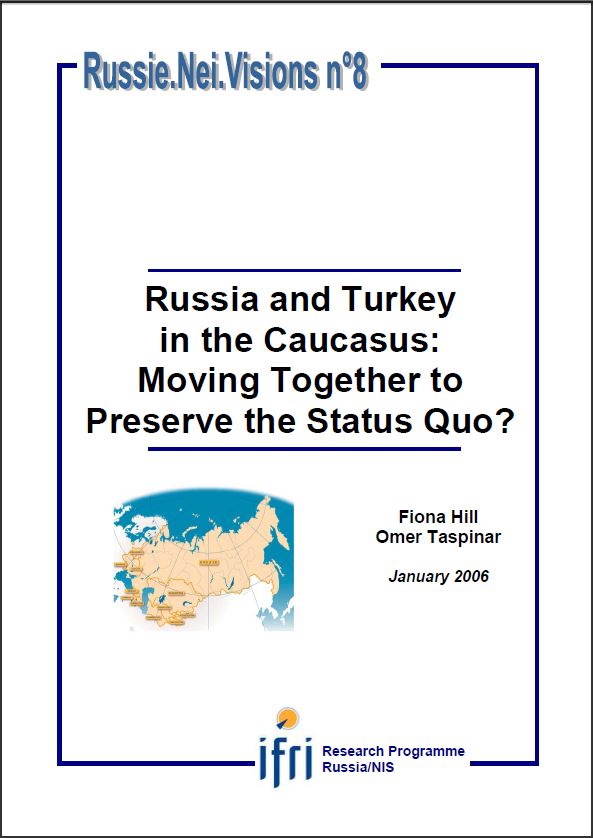Russia and Turkey in the Caucasus: Moving Together to Preserve the Status Quo?

Since 2003 and after centuries of geopolitical competition, Russia and Turkey have drawn together in a new bilateral relationship. Expanding trade has been a major driving force behind this, but shared disillusionment with United States and European policies and attitudes, as well as increasing common ground on issues in the broader Black Sea region and further afield in the Middle East, have all played a role. At this juncture, the main impact of this new relationship is in Russia and Turkey's joint border area of the South Caucasus - with potentially negative implications for the fragile state of Georgia and for the European Union's new 'Neighborhood Policy' in the region.
Download the full analysis
This page contains only a summary of our work. If you would like to have access to all the information from our research on the subject, you can download the full version in PDF format.
Russia and Turkey in the Caucasus: Moving Together to Preserve the Status Quo?
Related centers and programs
Discover our other research centers and programsFind out more
Discover all our analysesThe Caspian Sea as an Emerging Energy Hub : Potentials and Limitations
This report analyzes the prospects of the Caspian Sea region — and its key actors except for Russia and Iran — becoming an important energy hub serving the needs of the European Union (EU).
The European Union's Strategic Test in Georgia
The political crisis brewing in Georgia is of an existential nature for the country. What is at stake is Georgia's future as a democratic and sovereign European nation (EU).
Commanders of Putin's Long War: Purged, Reshuffled and Disgruntled
The trend of reshuffling the Russian top military command in the course of a fast-evolving and far from successful war has progressed unevenly both across the Armed Forces’ structures and in time. The rationale for and timing of the abrupt cadre decisions made by Commander-in-Chief Putin often defy logical explanation, and the rare official clarifications are no more informative than the usual information blackout.
Russian Military Manpower After Two and a Half Years of War in Ukraine
In addition to a military victory in Ukraine, the Russian leadership is planning to build up sizable troop formations for a possible conflict with NATO in the Baltic region and the Kola Peninsula. In particular, current plans aim for the military manpower to grow by about 350,000, reaching a total of 1.5 million soldiers and commanders. In the context of the current conflict in Ukraine, this cannot be accomplished without a new wave of mass mobilization.









